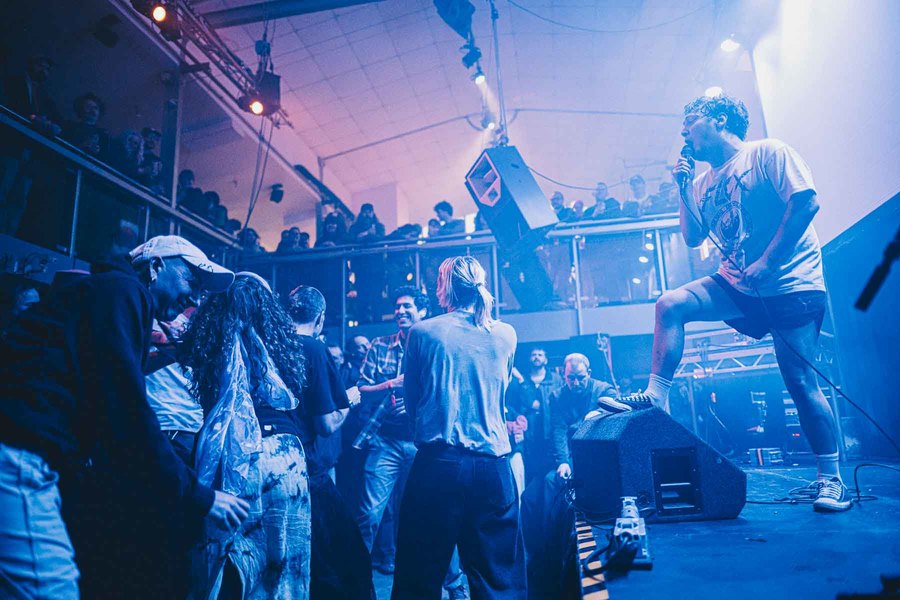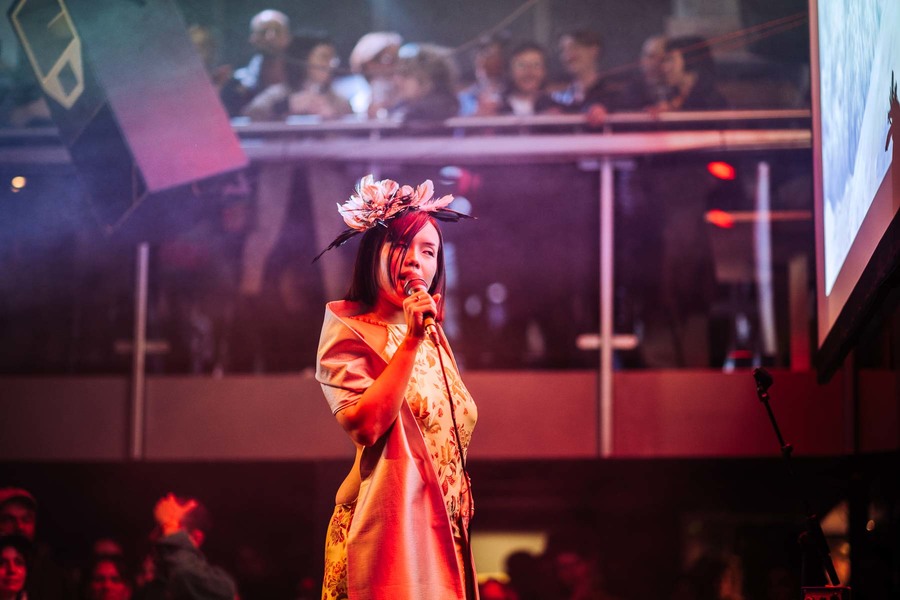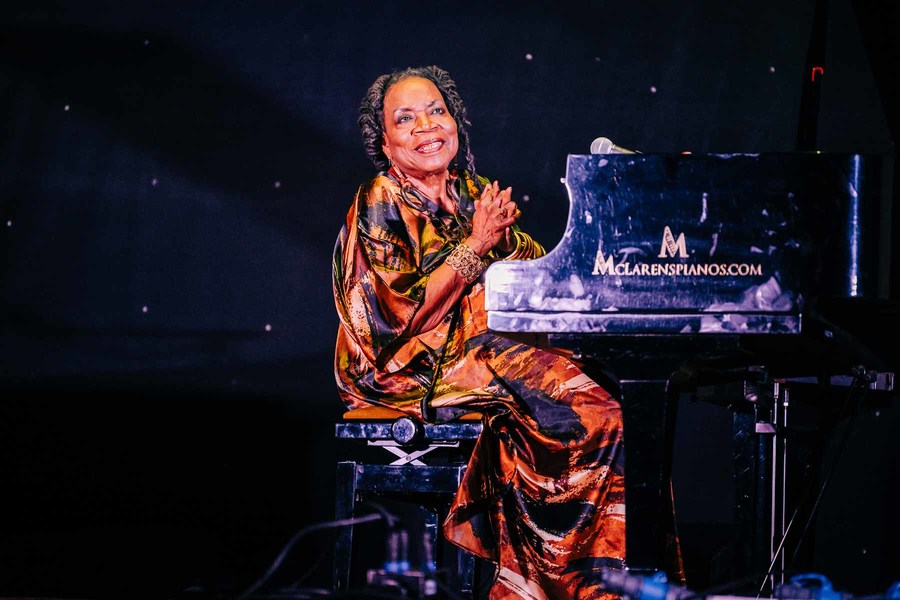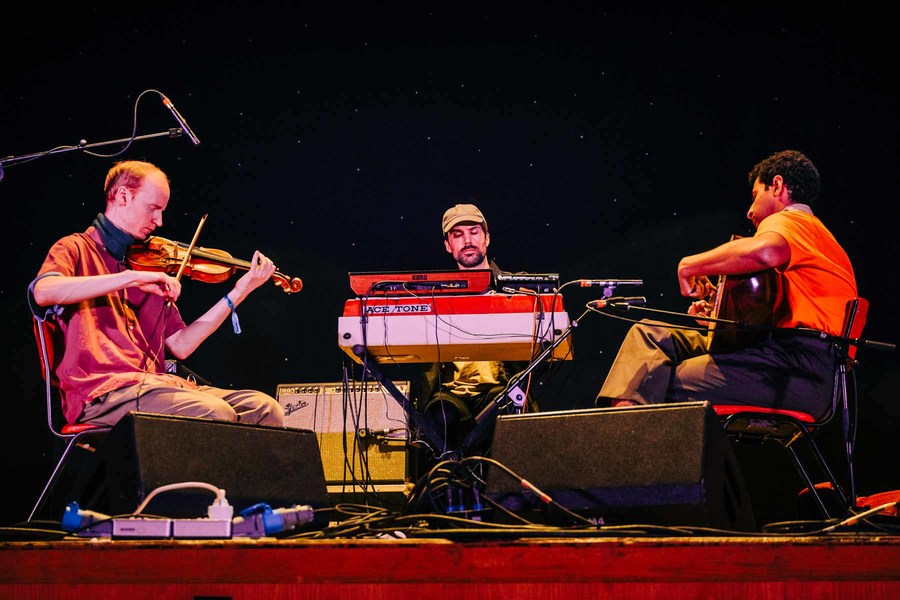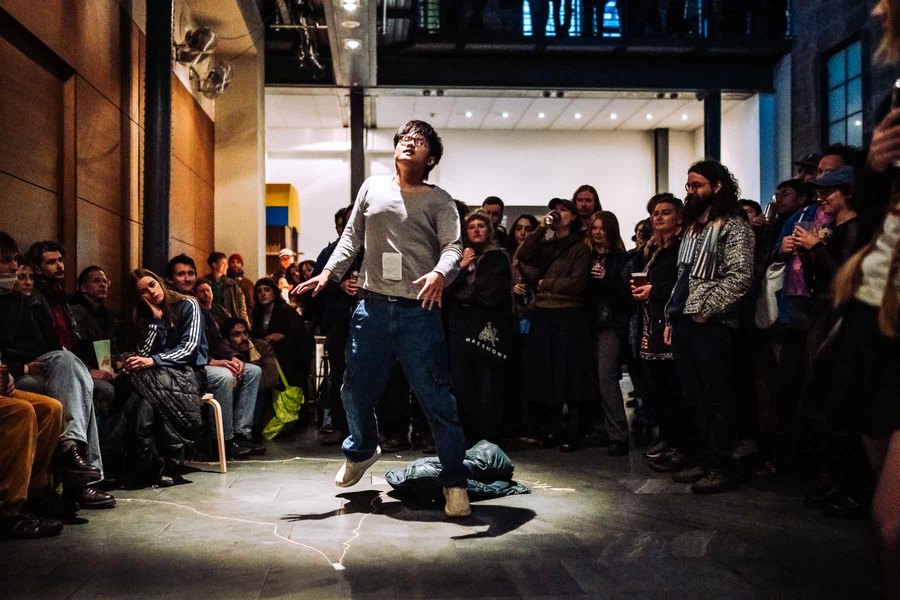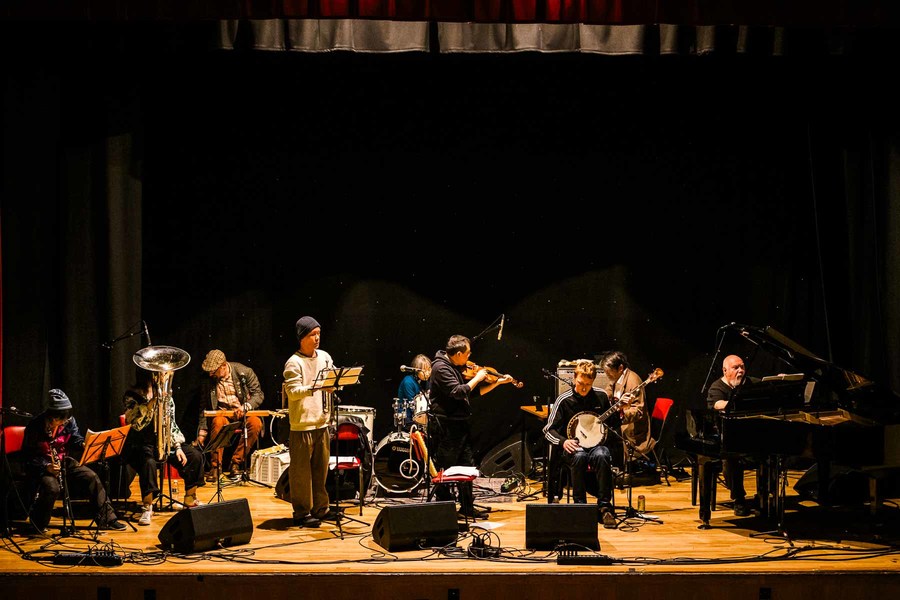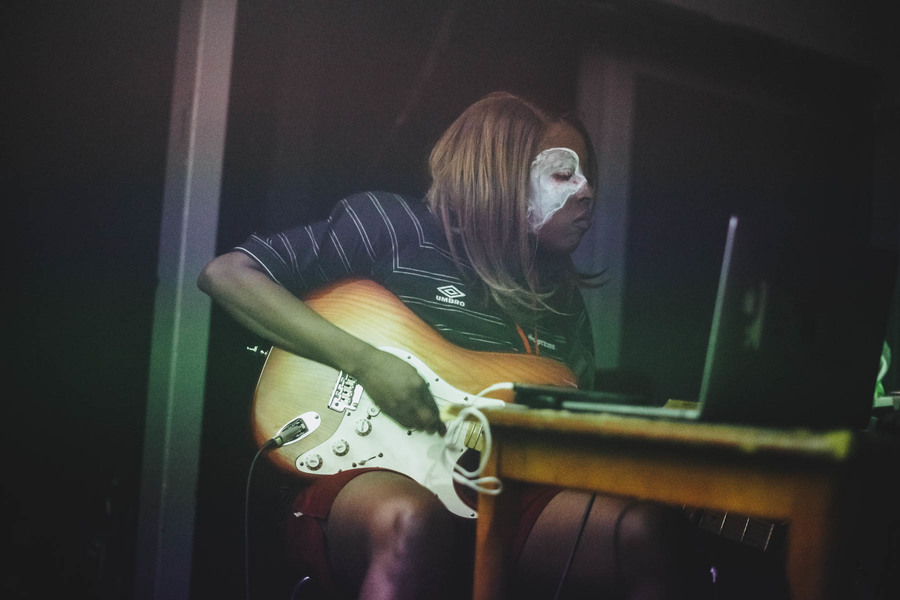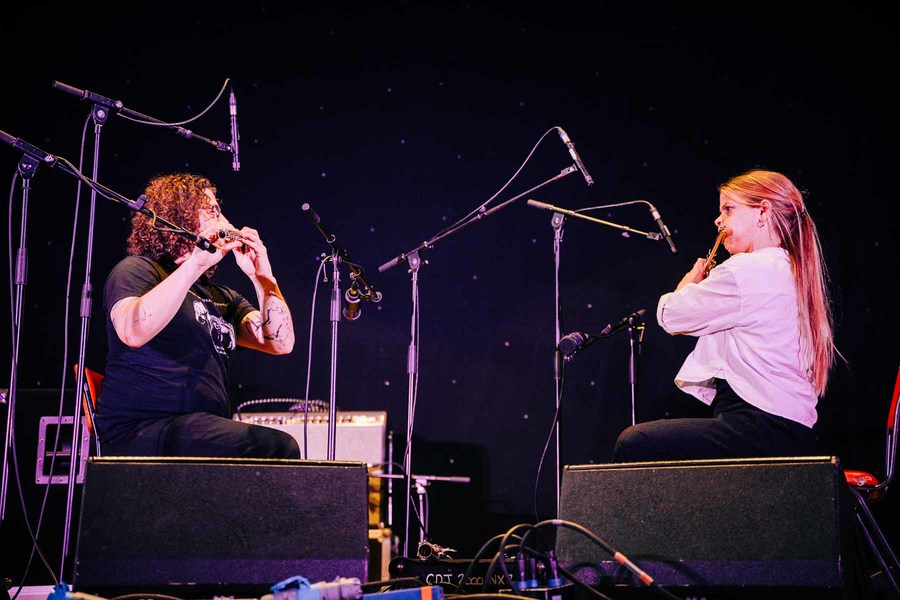Counterflows 2025: The Report
Counterflows returns to Glasgow and remains one of the finest festivals the UK has to offer
Counterflows starts with a scream. A stop-start surge of a grinding, piercing sound somewhere between the internal monologue of a knackered old Dell and a tone that’ll be familiar if you’ve ever had a wasp trapped in your hoover. What we’re hearing is the combined forces of Weston Olencki and Laura Cocks, whose Music for Two Flutes makes for the opening of this year's festival. They sit opposite each other, staring each other down like gunfighters, pushing each other to find unheard sounds in their instruments. Cocks runs a solo that sounds like Augustus Gloop scrambling away inside his big pipe; Olencki raises her the sound of Godzilla’s bigger, harder cousin. It feels like a sign of things to come for the festival ahead; a grating, abrasive work to reflect a burning world back at itself. But that’s not how things work out.
Returning to the city after a year away, and bolstered with a multi-year funding grant that secures the future of Counterflows for the foreseeable, this edition of Glasgow’s premier festival of experimental music seems to be imbued with a warmth not usually associated with experimental music spheres. It’s no more evident that in the opening night’s rapturous set from The Handover, which tugs you with charging ebullience from Egyptian folk-dance to interstellar heat death and back again with only oud, keys and violin. It’s unlike anything else, but totally immediate and physical.
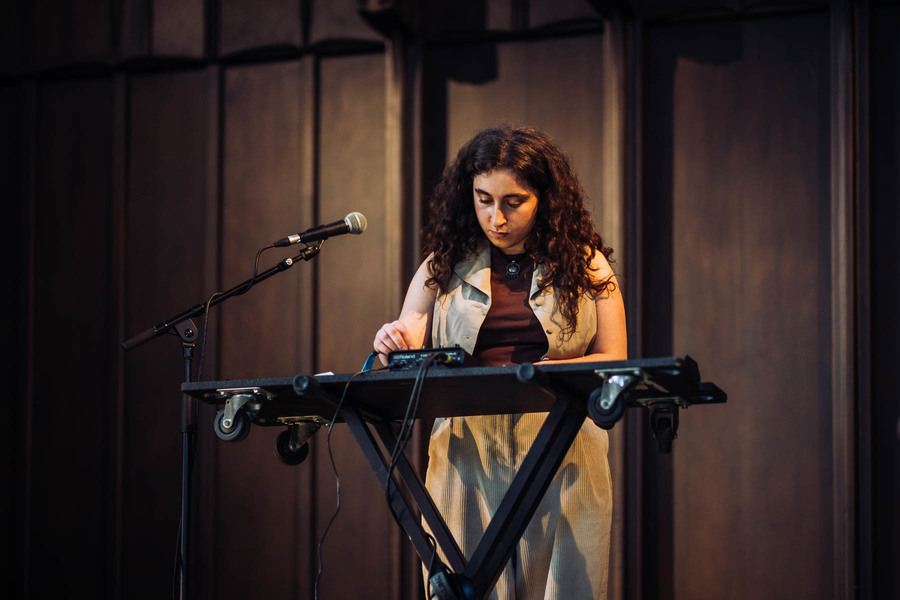
Image: Masa Nazzal @ Counterflows 2025 by Brian Hartley
The intermingling of Glasgow’s experimental scene and avant-garde luminaries that has been crucial to Counterflows since its inception remains strong. Friday opens with Masa Nazzal premiering her GLARC-released debut album Slovenia Inshallah, a slippery collage of electronics and field recordings collected during her time in Bosnia as part of no-borders activist group No Borders Kitchen. At the other end of the experience spectrum is Amina Claudine Myers. On what is, amazingly at 83, her debut Scottish gig, the legendary pianist and singer is on sparkling form. Her trademark blend of gospel, jazz, European classical and blues may merge into something instantly familiar, but there’s a subtlety to her nimble, pillowy piano playing that belies the scale of emotions on display. Her voice initially seems raspier with age, but it quickly begins to soar, and when she moves from piano to organ it’s one of the weekend’s finest moments; conjuring a beaming, iridescent sheet of sound that her voice glides forth on.
You’re in danger of getting a case of the bends such is the tonal shift moving from the comparatively traditionalist Myers to the following set over at the CCA. It’s nominally a show to spotlight the festival’s 2025 residency and the range of artists that took part, but it’s very much Trần Uy Đức’s show, and it’s a baffler in the best possible way. Standing in the centre of the crowd, over playback of his tilted take on pop he largely abandons any idea of singing his tunes to instead alternate between dancing, wandering off with his coat on, and having a bash at being a contortionist. No one can really see what’s going on, everyone’s a bit confused and it’s one of the best half hours of the festival; cheeky, wonky and slightly eerie fun, it’s a pretty bang-on physicalisation of his music.
The thriving Vietnamese underground has further representation in Saturday’s performance from Vũ Hà Anh, who powers through a set beset by technical bother with studied R'n'B charisma and, something not at the forefront of the festival, absolute belting tunes. The tone shift between her and computer music legend John Wall verges on the comical, but he’s similarly enrapturing. Playing directly from the sound booth he tears out his plastic reality nightmares, synth tones stretched like bubblegum until they seem to howl in pain, little snatches of rhythm being used like an Angler Fish uses its light; willing you to be drawn towards it only to plunge you down into the depths if you do. It doesn’t seem to grab the room though; it's perhaps the only time there feels like a programming flub, with the preceding set and the rambunctious ANGUSRAZE leaving an energised crowd to face a beat-less chaos they never quite seem to latch on to.
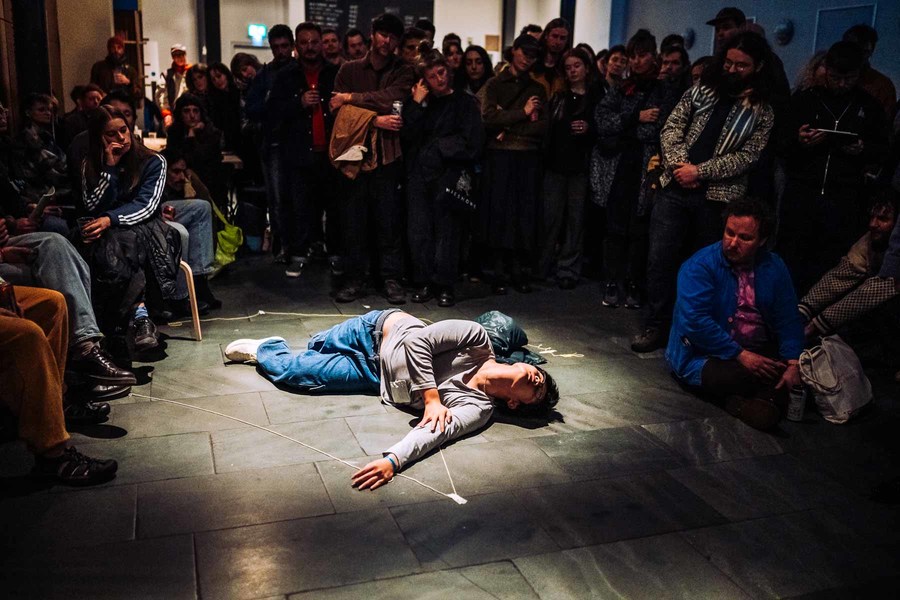
Image: Trần Uy Đức @ Counterflows 2025 by Brian Hartley
That said, the night on The Ferry is defined by Klein, whose set is truly astonishing. Over visuals (face painting, Street View, Tommy the Clown) from her season two short film, she sculpts something truly otherworldly. Her churning bass and clipped vocal samples aren’t unusual ingredients these days, but Klein has this capacity to pitch them at the perfect point of tears-in-your-eyes moving and deeply unsettling. It’s a line she walks in the set's moments of theatricality too; the moment where she and her counterpart dance, backlit by strobes, is at once quite sweet, but also has the uncanny horror of the scene in Pulse where the ghost clambers towards the camera. But out of this claustrophobia comes an ascendance, and when she picks up the guitar that has dominated her last few records, it's impossibly ecstatic, filling the room with chiming tones that seem to have fallen from heaven.
But the defining feeling of the festival, the one that seems to capture how this Counterflows feels better than any other, comes in the final performance of the year. You never quite know what you’ll get from Maher Shalal Hash Baz; it could be blistering noise-rock, could be pastoral folk, but the group, centring on Tori Kudo and his mistakes-first philosophy, thrive on surprises. But with Bill Wells joining them we get a set of what was conjured on their 2006 collaboration Osaka Bridge – namely, just about the warmest, most achingly pure music in the world. What that sounds like in person is a particularly enthusiastic but cack-handed school orchestra playing some of the sweetest melodies conjured by the human mind. This combined with their gentle, shambling stage presence is a wonderful thing to witness, and the room and everyone in it seems to be aglow by the set’s end.
It’s a gorgeous closing to the festival, and one that seems to embody the festival’s vision of experimental music, one that understands that the self-seriousness and solemnity that so often fill the world are irrelevant – it’s the giddy opportunity of the unknown that defines it.
Counterflows took place across various venues in Glasgow, 3-6 Apr
counterflows.com
